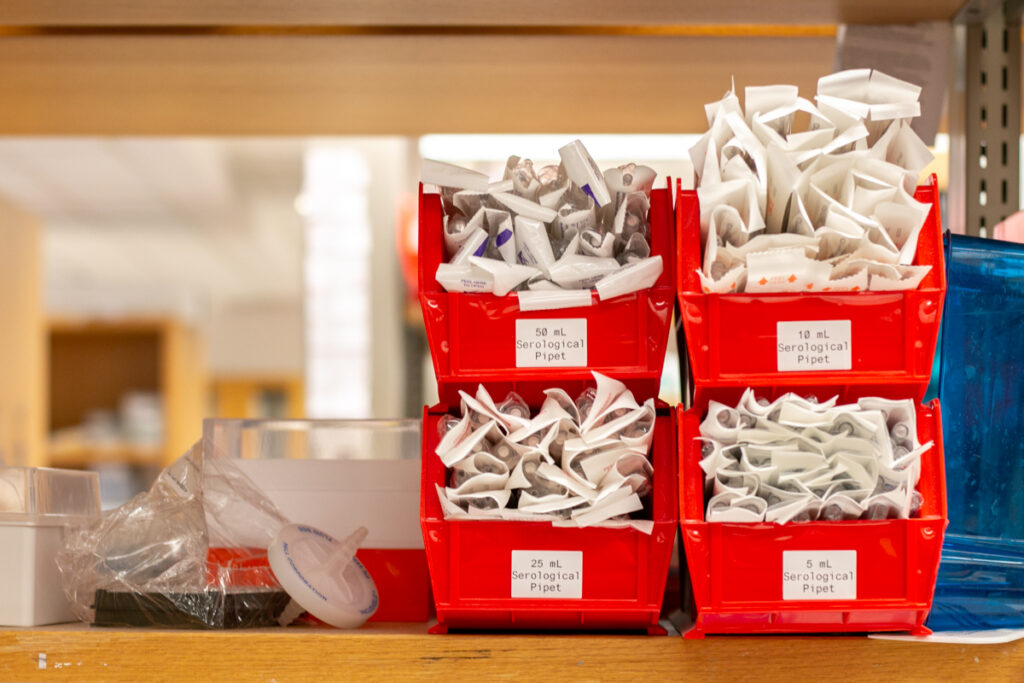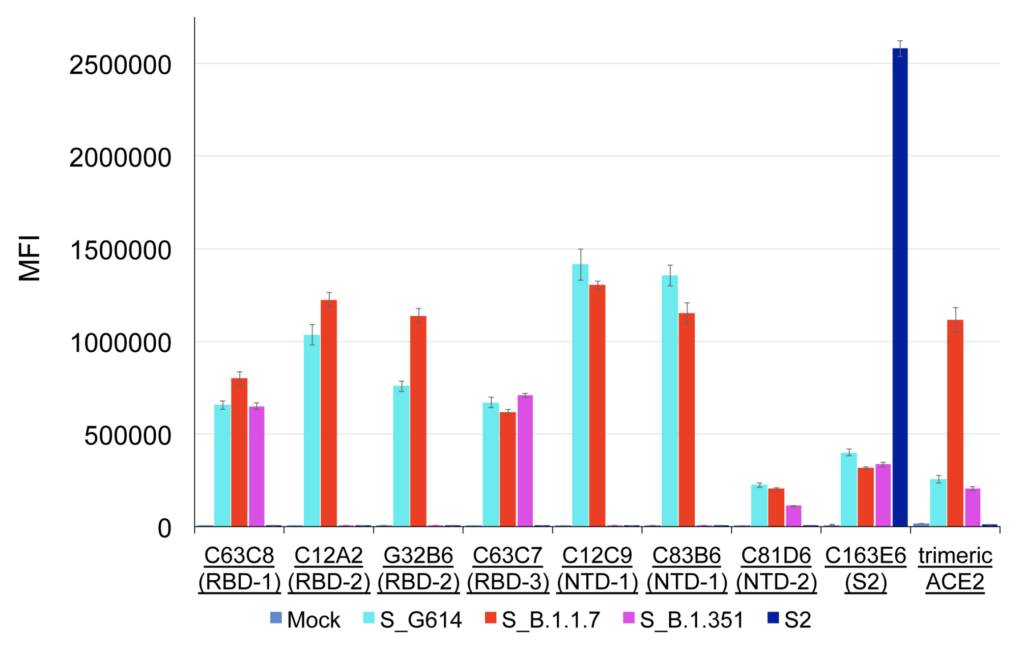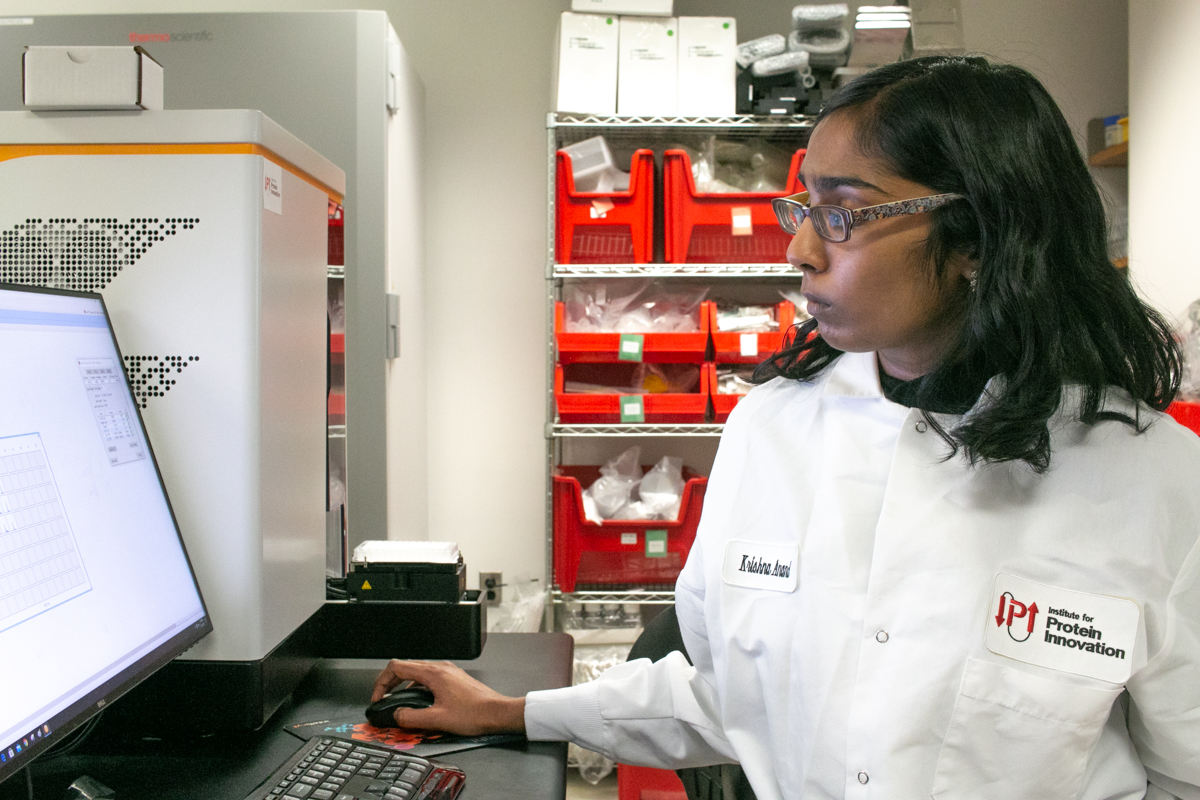Krishna Anand spends her weekdays at the tail end of the Institute for Protein Innovation’s (IPI) middle bay. Multichannel pipettes hang in a line down the wall, labeled with her name in loopy cursive. Test tube holders, buffers and buckets of still-wrapped serologicals — her tools for protein expression — lie in wait on the shelves and worktop, poised for upcoming experiments.
It’s a lab space that feels lived in, one that has long served as the home base to Anand, research associate on IPI’s Protein Production team. Since she joined in 2019, she has moved from the pipeline’s end to beginning, grown from contract researcher to published molecular biologist and picked up an attractive repertoire of academic and industrial skills. Equipped, she’ll soon leave for the next step: a doctoral program in biomedical sciences at the University of Massachusetts Chan Medical School.
“I’ve learned a lot at IPI,” she says. “And even after three years, I’m still growing.”
As a teenager in Lexington, Massachusetts, Anand always thought of herself as more of a “studio art person,” she says. Her first few years as an undergraduate at Reed College in Portland, Oregon, straddled a passion toward illustration and a pull to science.
When she could no longer see a “practical way” forward in art, she pursued a biology major, joining Janis Shampay’s telomere lab. She spent her senior year enthralled by the power of research and busy constructing an epitope-tagged clone of the telomere-associated protein, TIN2, in the model organism Xenopus laevis.
Shortly after graduation, she joined IPI as a part-time researcher performing characterization assays. Immediately, she was drawn to the unique environment — more creative, ambitious and research-oriented than the labs she had previously experienced.
“I felt like it was okay to ask a lot of questions,” Anand says.

Day by day, as she investigated new lines of inquiry and asked ever-more questions, she found herself becoming more deeply invested in the research process. Biology, she realized, was no longer a “backup choice.” She was determined to pursue it as a passion — and quickly excelling.
In January 2020, she became a full-time research associate, working with principal scientist Haisun Zhu to pressure-test IPI antibodies for their ability to bind well to targets. She also mastered cell display, in which she tested and characterized antibodies in bulk — up to 1,200 antibodies at a time — using the lab’s Beckman Coulter Biomek FXᴾ and Intellicyt iQue Screener PLUS, watching over the robots to ensure they stayed on track.
“The best part,” according to Anand, was the eureka moment of reading fluorescence emission plates from flow cytometry experiments, learning whether or not the antibodies worked.
Spurred into action
A memorable chapter in her IPI story came just months after Anand was hired full-time. The novel coronavirus SARS-CoV-2 was sweeping across the globe, infecting millions and spurring those with the tools to study infectious disease mechanisms into action — IPI researchers among them.
Anand and Zhu joined a research effort led by Boston Children’s Hospital and Harvard Medical School virologist Bing Chen to study how mutations in the viral spike protein affected the transmissibility of SARS-CoV-2 variants.
Using flow cytometry, Anand characterized the binding of membrane-bound spike (S) trimers to the viral receptor, angiotensin-converting enzyme 2 (ACE2), and S-directed monoclonal antibodies isolated from COVID-19-infected individuals. The analytical results of these experiments helped the Chen lab assess the antigenic properties of the spike proteins and better understand the mechanisms of infectivity and immune invasion.

The group’s study on the Alpha, Beta and Gamma variants was published in Science in June 2021. As additional variants rose to dominance, the team reassembled to investigate the transmissibility of Delta, also published in Science. Further study of the Omicron variant is also undergoing peer review.
As the coronavirus was restructuring much of society outside the lab, inside, IPI was undergoing a reorganization of its own under the new management of Rob Meijers, newly appointed as director of the antibody platform at IPI.
The lab previously worked in two main groups; one concentrated on antigens and their target antibodies, while the other focused on the discovery of synthetic antibodies. Everything was in place to meet IPI’s ambitious goals, but the two halves functioned as two disjointed parts, according to Meijers. In May 2021, Meijers began “streamlining” the lab by arranging it into four teams: Protein Production, Biophysics, Antibody Discovery and Bioinformatics.
This reordering — which has improved quality control throughout the pipeline and enhanced cross-lab communication, according to Meijers — allowed Anand the opportunity to cross-train and continue learning. She moved from endgame characterization to the frontline Protein Production team.
From the same bench, Anand now transfects cells with plasmids containing fragments of DNA that harbor the code for antigen targets of interest. She first judges their yield and quality before testing variant plasmid vectors to optimize their production in different constructs, cells and conditions. Her goal is to make a selection of high-quality antigens in ample quantities to hand down the line to the Antibody Discovery team. There, Krishna’s antigens will be used to screen and optimize strong binding antibodies, which are then produced in the IPI lab for future use in research and therapeutic discovery worldwide.
In January 2022, Anand learned of her acceptance to the University of Massachusetts Chan Medical School’s biomedical Ph.D. program. She’ll start the program in August, excited to study intercellular cancer signaling and armed with an arsenal of techniques picked up at IPI.
“Knowing that I can grow even more?” she says. “It’s really freeing.”
Writer: Caitlin Faulds, caitlin.faulds@proteininnovation.org
Sources: Krishna Anand, krishna.anand@proteininnovation.org;
Rob Meijers, rob.meijers@proteininnovation.org


